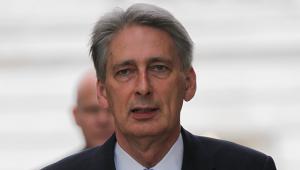
(Left to right) Ben Hunte, Paul Kissack, Dr Laurence Ferry and Cllr Susan Hinchcliffe at PF Live. Image © Rafael Bastos
Paul Kissack, veteran of numerous Whitehall departments and now group chief executive of the Joseph Rowntree Foundation pulled no punches with his assessment of the current state of play: “The picture is pretty bleak. It’s important that we start with a realistic sense of where we are. We’re in the midst of an enormous experiment with local government which has reached an extreme point of centralisation. We’ve seen more power and control from local to central government.
“That’s manifested in a variety of ways, but has left some people questioning the very point and mission of local government.”
Kissack’s diagnosis – of centralised powers, lack of funding, broken financing models and a general sense of disempowerment – was broadly shared by Susan Hinchcliffe, leader of the City of Bradford Metropolitan District Council.
As the leader of one of the most challenged authorities in the UK, she has had a front row seat as local government has seen its powers and influence wane. But while she remains an advocate for effective devolution, she accepted it would only succeed when coupled to economic growth.
“I can see the size of the prize on offer from devolution through growth,” she told delegates. “We cannot find our way out of this if we don’t generate growth in this country, for public services and better jobs for people. I see devolution as a chance to draw down regeneration money for big projects.”
However, Dr Laurence Ferry, professor in accounting for democracy at Durham University Business School stressed that devolution is not a silver bullet.
“It’s part of the solution, and there’s no concrete evidence that devolution delivers benefits. But if you want effective devolution, you might need special planning powers, and some of the national systems devolved. But some things will have to stay with central government: R&D, universities, skills and so on. And until we change the funding model then it’s unlikely to change.”
Kissack agreed that the link between devolution and growth has never been conclusively proved; it’ll take more than hard cash to allow local government to deliver for their communities.
“There are a couple factors to highlight that make a difference: coherence is key. Combined authorities offer the chance to bring things together: so transport and planning, for instance, or skills and employment services. Coherence makes a difference to economic growth. Alongside that, the devolution of fiscal powers can have an impact. Even combined authorities still receive around 60% of funding from the centre, so it’s a model that requires regions to seek funding from central government rather than have control over its own tax base.”
And to those who focus on the risk that change brings – and who see the status quo as the safer option – Kissack was blunt: “We always assume change is risky, but we tend to undersee the risk of continuing what we’re doing.
“Our country is a mess, and we have an extremely centralised state, so what’s the risk of devolution? We have to do something different, and the bigger risk is carrying on with the status quo.”











